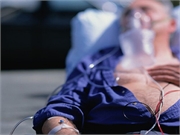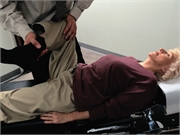
First-aid myths may do more harm than good, says the University of Rochester Medical Center. The school mentions these examples of first-aid folklore, and what to do instead: Putting hot water on frozen skin can cause serious damage. Slowly thaw skin with warm water instead. Rubbing alcohol does not bring down a fever. Use ibuprofen… read on >



























